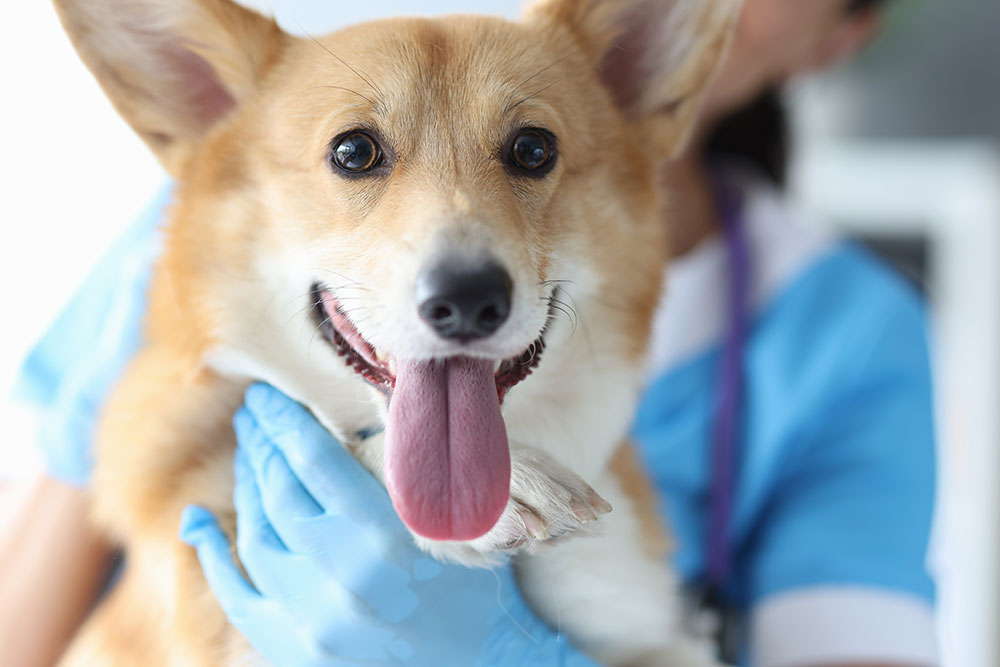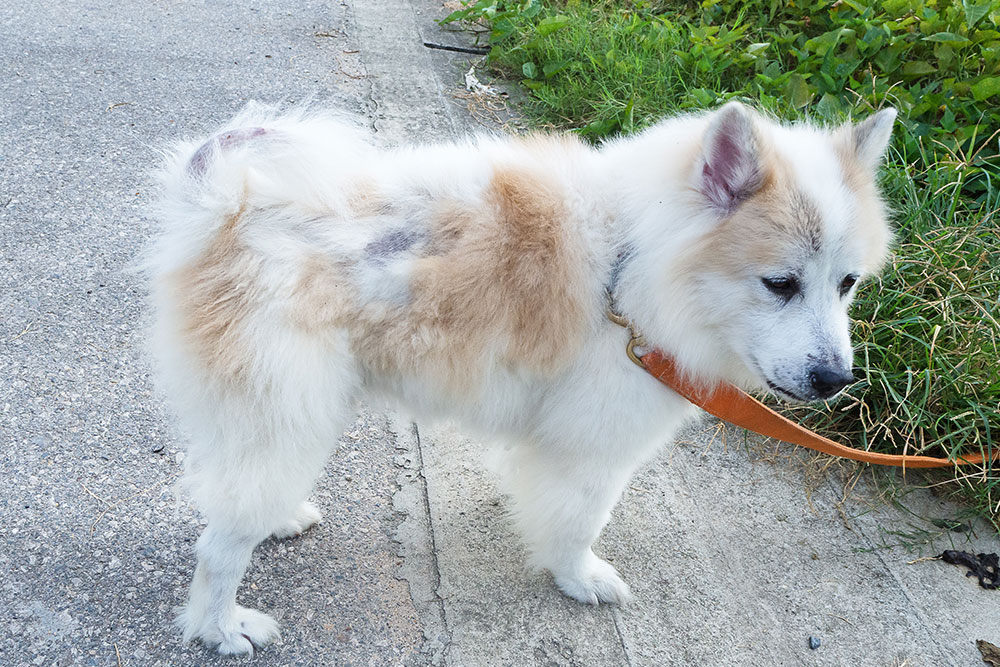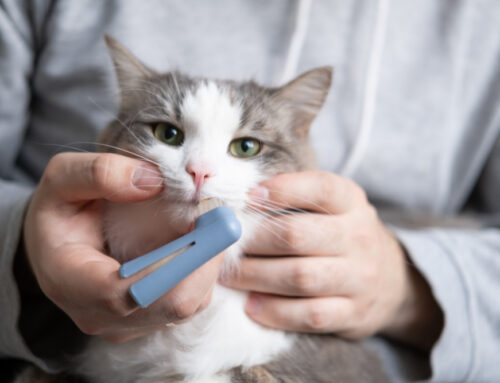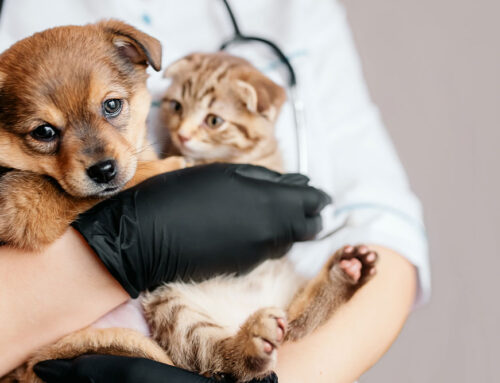Understanding Hypothyroidism and Hyperthyroidism in Pets
At Cane Bay Veterinary Clinic, we provide comprehensive care for pets with thyroid issues. Hypothyroidism and hyperthyroidism are significant conditions affecting pet health, behavior, and well-being. This guide offers insights into these conditions, their symptoms, and treatment options available at our clinic.
What are Hypothyroidism and Hyperthyroidism?
Hypothyroidism and hyperthyroidism result from an imbalance of thyroid hormones in your pet’s body. The thyroid gland, located in the neck, regulates metabolism and energy levels.
- Hypothyroidism occurs when the thyroid gland produces insufficient thyroid hormone, primarily affecting dogs. This can cause lethargy and weight gain. Untreated, it may lead to severe symptoms like bradycardia (slow heart rate) and anemia.
- Hyperthyroidism involves an overproduction of thyroid hormones, mostly seen in cats. This accelerates metabolism, causing weight loss and hyperactivity. If not managed, it can lead to hypertension (high blood pressure) and cardiac issues such as tachycardia (rapid heart rate).
Recognizing the Symptoms of Thyroid Diseases in Pets
Common Symptoms of Hypothyroidism in Dogs
Look for these symptoms in dogs:
- Unexplained weight gain without increased appetite.
- General lethargy and reduced activity.
- Skin issues, including dry skin and hair loss.
- Intolerance to cold weather.
- Behavioral changes like depression or irritability.
Signs of Hyperthyroidism in Cats
Hyperthyroidism in cats presents with:
- Increased appetite with weight loss.
- Hyperactivity and restlessness.
- Gastrointestinal issues such as vomiting and diarrhea.
- Increased thirst and urination.
For insights into related health issues, read about feline viral diseases.
Diagnosing Thyroid Problems in Pets
Proper diagnosis is critical in managing thyroid diseases. At Cane Bay Veterinary Clinic, we use advanced diagnostic tools.
- Regular veterinary visits are recommended for early detection. Subtle changes in behavior or physical condition should prompt a clinic visit.
- We conduct thorough blood tests to measure thyroid hormone levels (T4 and TSH) and utilize imaging technologies like ultrasound.
For detailed information, visit our Diagnostic Services page.
Treatment Options for Hypothyroidism and Hyperthyroidism
Treating Hypothyroidism in Dogs
Management involves:
- Hormone replacement therapy with levothyroxine, with dosage adjustments based on regular blood tests.
- Regular monitoring to adjust medication and maintain optimal hormone levels.
Managing Hyperthyroidism in Cats
Treatment options include:
- Medications like methimazole to control hormone production.
- Dietary adjustments, including low-iodine prescription diets.
- Surgical removal of the thyroid gland or radioiodine therapy.
For surgical treatments, visit our Surgical Treatments page. Also, consider reviewing the Feline Hyperthyroidism Guidelines by AAHA.
Living with Thyroid Disease: Care and Management at Home
Daily Management and Care for Hypothyroid Dogs
Effective home care includes:
- A balanced diet and regular exercise to prevent obesity.
- Routine veterinary check-ups for monitoring and medication adjustments.
- Observing for new symptoms or changes in behavior.
Supporting Your Hyperthyroid Cat
Home care for hyperthyroid cats involves:
- Ensuring adequate hydration to prevent dehydration.
- Creating a calm living environment to manage symptoms.
- Monitoring for complications like hypertension.
For hydration tips, read about increasing your cat’s water intake. For more on pet nutrition, read our article on kitten nutrition.

Frequently Asked Questions About Pet Thyroid Health
FAQs
Q. What are the long-term effects of untreated thyroid conditions?
A. Untreated hypothyroidism can lead to metabolic imbalances and heart issues. Hyperthyroidism can cause cardiac and renal failure.
Q. Can lifestyle changes impact thyroid health?
A. Yes, a balanced diet, regular exercise, and minimizing stress can support thyroid health.
Q. When should I contact a vet?
A. Contact your veterinarian if you notice sudden changes in appetite, weight, activity levels, or behavior.
For more FAQs, visit our Client Education Resources page.
Tips and Tricks for Managing Thyroid Health at Home
- Tip 1: Consistency is key. Ensure medication is given at the same time daily.
- Tip 2: Monitor your pet’s weight and behavior, and keep a journal for veterinary consultations.
- Tip 3: Create a stress-free environment with gentle handling and familiar routines.
Why Choose Cane Bay Veterinary Clinic for Your Pet’s Thyroid Problems?
At Cane Bay Veterinary Clinic, we offer:
- Personalized care tailored to each pet’s needs.
- State-of-the-art diagnostic and treatment options.
- A team of experienced professionals dedicated to your pet’s health.
For more information, contact our team.







Leave A Comment